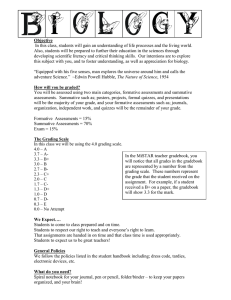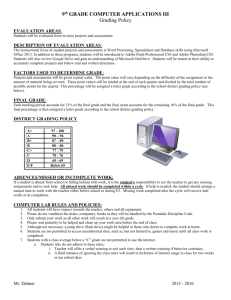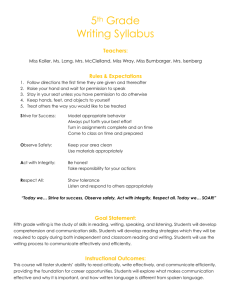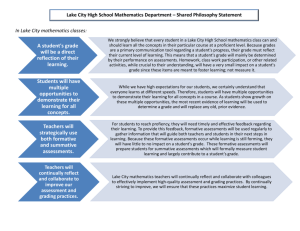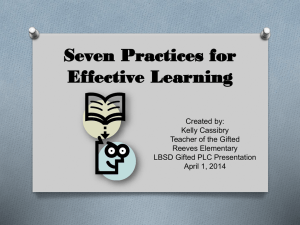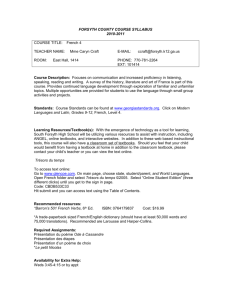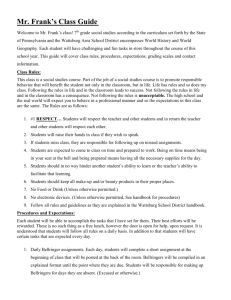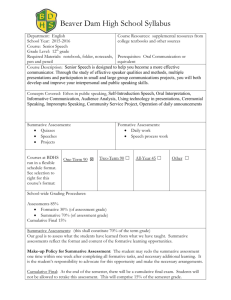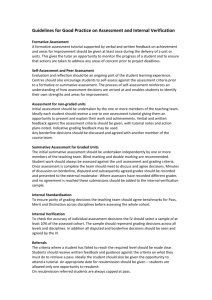8th Grade Language Arts
advertisement
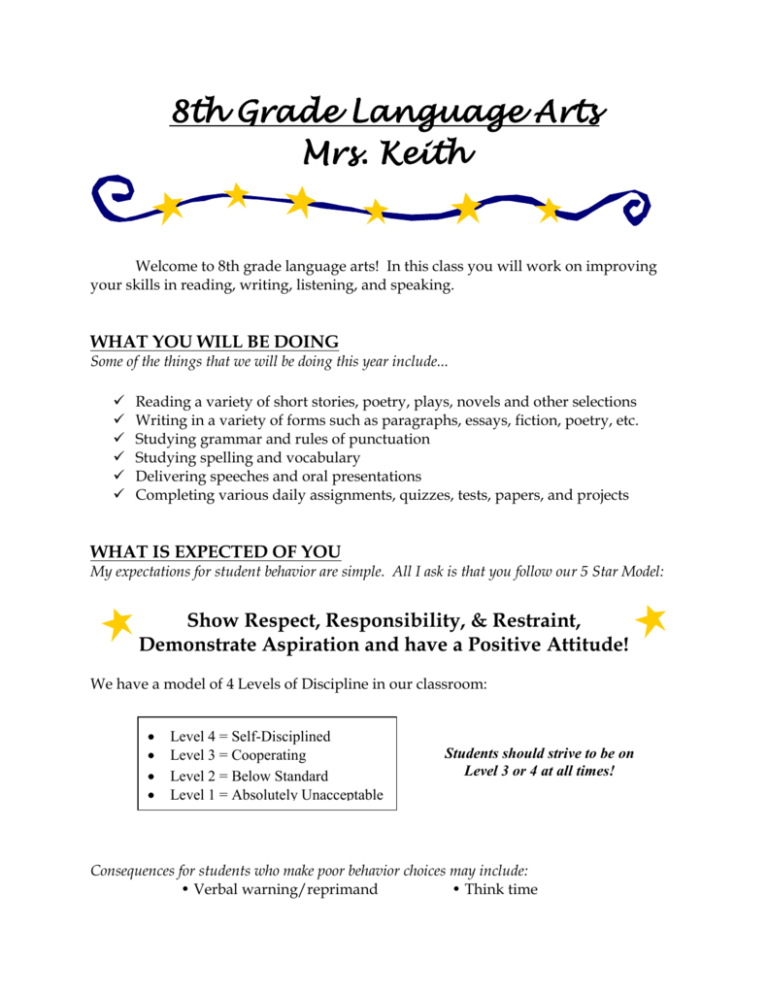
8th Grade Language Arts Mrs. Keith Welcome to 8th grade language arts! In this class you will work on improving your skills in reading, writing, listening, and speaking. WHAT YOU WILL BE DOING Some of the things that we will be doing this year include... Reading a variety of short stories, poetry, plays, novels and other selections Writing in a variety of forms such as paragraphs, essays, fiction, poetry, etc. Studying grammar and rules of punctuation Studying spelling and vocabulary Delivering speeches and oral presentations Completing various daily assignments, quizzes, tests, papers, and projects WHAT IS EXPECTED OF YOU My expectations for student behavior are simple. All I ask is that you follow our 5 Star Model: Show Respect, Responsibility, & Restraint, Demonstrate Aspiration and have a Positive Attitude! We have a model of 4 Levels of Discipline in our classroom: Level 4 = Self-Disciplined Level 3 = Cooperating Level 2 = Below Standard Level 1 = Absolutely Unacceptable Students should strive to be on Level 3 or 4 at all times! Consequences for students who make poor behavior choices may include: • Verbal warning/reprimand • Think time • Yellow slip • Loss of daily points • Parent contact • Office Referral • ISS (in school suspension) • OSS (out of school suspension) Standards Based Grading Students in this class will be graded using a standards based grading system. Standards based grading measures what a student should know and be able to do at a particular grade level in a particular subject. The standards for this class are based on the Washington State Learning Standards, known as the Essential Academic Learning Requirements (EALRs). Formative Assessments = 20% of a student’s grade Formative assessments are low-risk activities where students practice their skills on the standards. They are usually things like in class activities, worksheets, questions, quizzes, writing, small presentations, etc. They are used to track student progress over time and let the teacher, student, and parents know how a student is progressing toward meeting the standards. Summative Assessments = 80% of a student’s grade Summative Assessments measure how well a student has mastered a standard after a period of time. They are usually things like tests, essays, large projects, speeches, etc. Students may raise a summative score (grade) if they can show a gain in knowledge or skill, either by retesting or completing some other work to show what they know and can do. Scoring of Student Work In standards based grading, students do not earn points by completing assignments and taking tests. Instead, they must demonstrate their level of skill on a set of standards. Student work is scored on a 4-point scale. 4 = Advanced 3 = At Standard 2 = Developing 1 = Beginning 0 = No Knowledge or Skill In a 4-point scale, the numbers refer to a level of mastery; they do not directly equate to percentages. In other words, a “3” means “At Standard,” not 75% of possible points. For example, using a 4-point scale, if a test has 25 items, a student would not receive a traditional score like 21/25. Instead he might receive a score such as “3,” which shows that his level of mastery of these skills on this assessment was “At Standard.” Students may receive ½ point scores such as 3.5, 2.5, and so on. Grading Scale At the end of the quarter/semester, a student’s scores for all formative (20%) and summative (80%) assessments will be translated into a cumulative letter grade. A = 3.6-4.0 A- = 3.5-3.59 B+ = 3.4-3.49 B = 3.1-3.39 B- = 3.0-3.09 C+ = 2.8-2.9 C = 2.2-2.7 C- = 2.0-2.1 D+ = 1.8-1.9 D = 1.0-1.7 F = 0.9 or less Work Habits/Success Skills Students will receive scores for work habits/success skills such as: Class participation Behavior & attitude On time work completion Use of class time Ability to work with others These scores will be separate from a student’s academic work and are not part of the letter grade they will receive for the class. Late Work Since every assignment is valuable and important to student learning, I do accept work that is turned in late. However, late work should not be a habit; it should be the exception for a student, or involve extenuating circumstances. Choosing not to do your work on time and then expecting to be able to turn it in late is not a good study habit. Students turning in late work will receive a lower score for on time work completion. DO NOT WAIT until the end of the quarter and then try to make up many missed assignments at once! There will be a cut off of 1 week prior to the end of each quarter/semester for late or resubmitted work to allow the teacher time to calculate grades. After school tutorial sessions are available twice a week and are an excellent time for students to make up work. EVERY EFFORT SHOULD BE MADE TO TURN WORK IN ON TIME! I am really looking forward to working with you! If you have any questions about the above information, please don't hesitate to call me at school at 466-4113, or send me an email at skeith@lc.k12.wa.us Please sign below to indicate that you have read and understand the above information, and then return this sheet to class by Friday. ______________________________ Student's name (please print) __________________________________ Parent's name (please print) ______________________________ Student's signature __________________________________ Parent's signature

